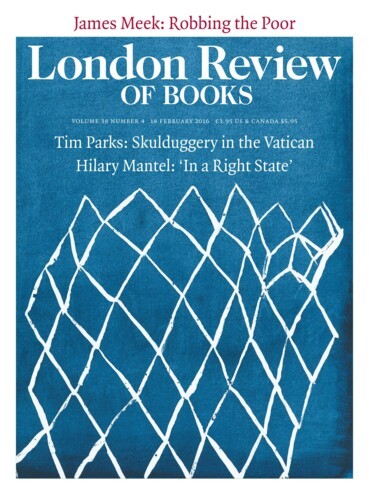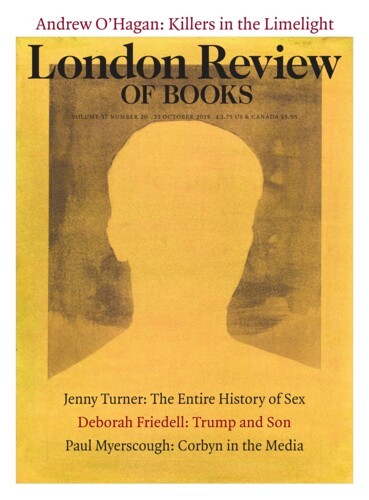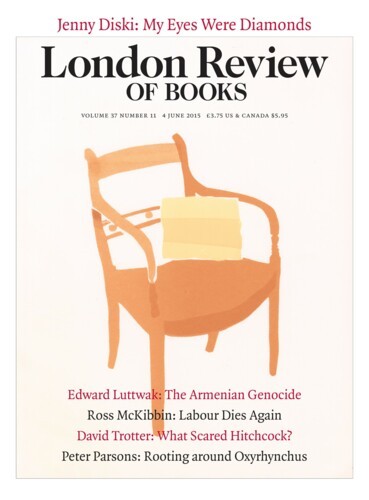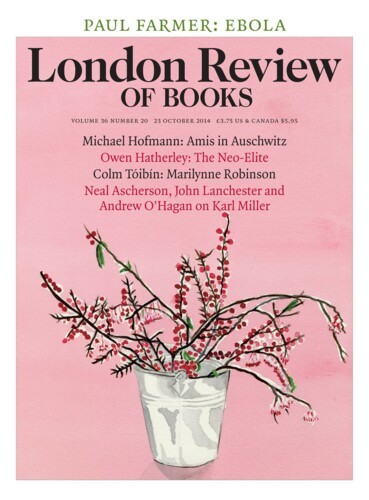Jack in the Belfry
Terry Eagleton, 8 September 2016
The Earl of Portsmouth’s long-suffering domestic staff were desperate to escape his childish pranks: if the earl wanted to play hide and seek, they would pretend not to know where he was hiding. He liked his manservant to rap the pig-tail of his wig against his neck like a knocker, shouting: ‘Is anybody at home?’ It was a pertinent inquiry.





